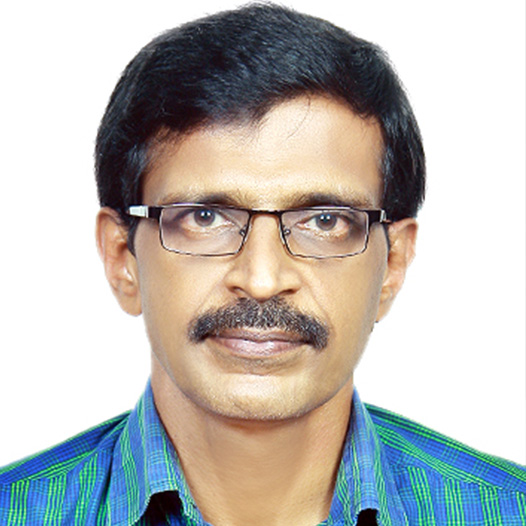About Department
The Department of Computer Science & Engineering of MEA Engineering College was established in 2002 by the affiliation of University of Calicut. The Department is now affiliated to APJ Abdul Kalam Technological University (APJAKTU). Over the years, the department has developed to become a center of excellence providing in-depth technical knowledge and opportunities for innovation and research with dedicated faculties & well-equipped workstations.
The curriculum in B.Tech. Computer Engineering lays emphasis on design and development of both hardware and software, in addition to software packages. Miniaturization in computer technology, audio-video and image processing, storage and retrieval of data from databases, compiler construction, Operating systems design, computer graphics, computer architecture, microprocessors based design are also the important components of the curriculum.
Presently, the department has five diverse laboratories. This includes a Research Lab and common Computing Labs. Lab is designed to accommodate a minimum of 30 students and maximum 60 students per session and has been equipped with state-of-the-art computer systems that total 180+ computers with necessary peripherals.
Vision & Mission
Vision
The Computer Science and Engineering department is committed to provide an educational environment in order to develop professionals with strong technical skills and aptitude towards the research and entrepreneurship.
Mission
- To impart quality education to the aspiring students for improving their level of confidence to solve various engineering problems.
- To deliver a perfect blend of technical and soft skills for creating competent computer engineers with professional and ethical values.
- To cultivate an environment of intellectual growth in pursuit of academic and research activities.
- Programme Educational Objectives (PEOs)
- Programme Outcomes (POs)
- Programme Specific Objectives (PSOs)
Programme Educational Objectives (PEOs) - B.Tech
- To make our graduates work productively as Computer Engineers by applying appropriate models / technical tools to develop their solutions.
- To encourage team management skills with cross-cultural etiquette to deliver projects with varied complexity.
- To facilitate the graduates to reach stratum of excellence through life-long learning
- To bring harness with society by sensitizing the students towards issues of social relevance and to introduce them to professional ethics and practice.
Programme Educational Objectives (PEOs) - M.Tech
- Work productively as Computer Engineers by bringing the physical, analytical and computational approaches to bear on the challenges they take on, abstracting essential structure, recognizing sources of uncertainty, and applying appropriate models, technical tools, and evaluations to develop their solutions.
- To promote among student graduates the ability to gain multidisciplinary knowledge through projects and industrial training, leading to a sustainable competitive edge in R&D and meeting societal needs.
- To promote the research, product implementation and services in the field of Computer Science and Engineering through strong technical, communication and entrepreneurial skills.
- To promote life-long self-learning abilities through the successful completion of advanced degrees,continuing education, certifications and/or other professional developments in order to remain professionally effective to the society at large.
Programme Outcomes (POs)
- Engineering knowledge: Apply the knowledge of mathematics, science, engineering fundamentals and an engineering specialization to the solution of complex engineering problems.
- Problem analysis: Identify, formulate, review research literature, and analyze complex engineering problems reaching substantiated conclusions using first principles of mathematics, natural sciences, and engineering sciences.
- Design/development of solutions: Design solutions for complex engineering problems and design system components or processes that meet the specified needs with appropriate consideration for the public health and safety, and the cultural, societal, and environmental considerations.
- Conduct Investigations of complex problems: Use research-based knowledge and research methods including design of experiments, analysis, and interpretation of data, and synthesis of the information to provide valid conclusions.
- Modern tool usage: “Create, select, and apply appropriate techniques, resources, and modern engineering and IT tools including prediction and modeling to complex engineering activities with an understanding of the limitations.”
- The engineer and society: Apply reasoning informed by the contextual knowledge to assess societal, health, safety, legal and cultural issues and the consequent responsibilities relevant to the professional engineering practice.
- Environment and sustainability: Understand the impact of the professional engineering solutions in societal and environmental contexts, and demonstrate the knowledge of, and need for sustainable development.
- Ethics: Apply ethical principles and commit to professional ethics and responsibilities and norms of the engineering practice.
- Individual and team work: Function effectively as an individual, and as a member or leader in diverse teams, and in multidisciplinary settings.
- Communication: Communicate effectively on complex engineering activities with the engineering community and with society at large, such as being able to comprehend and write effective reports and design documentation, make effective presentations, and give and receive clear instructions.
- Project management and finance: Demonstrate knowledge and understanding of the engineering and management principles and apply these to one’s own work, as a member and leader of a team, to manage projects and in multidisciplinary environments.
- Life-long learning: Recognize the need for, and have the preparation and ability to engage in independent and life-long learning in the broadest context of technological change.
Programme Specific Outcomes (PSOs)
- Skills on Hardware and Software tools: The ability to understand, use and analyze different software and hardware engineering tools and state-of-art technologies.
- Mathematical knowledge for research: The ability to apply mathematics, especially discrete mathematics, statistics, probability, graph theory and number theory in research work in various topics under the computer science.
- Entrepreneurship skills: The ability to provide with cutting-edge knowledge and skills on how sustainably develops captivating products and services.

